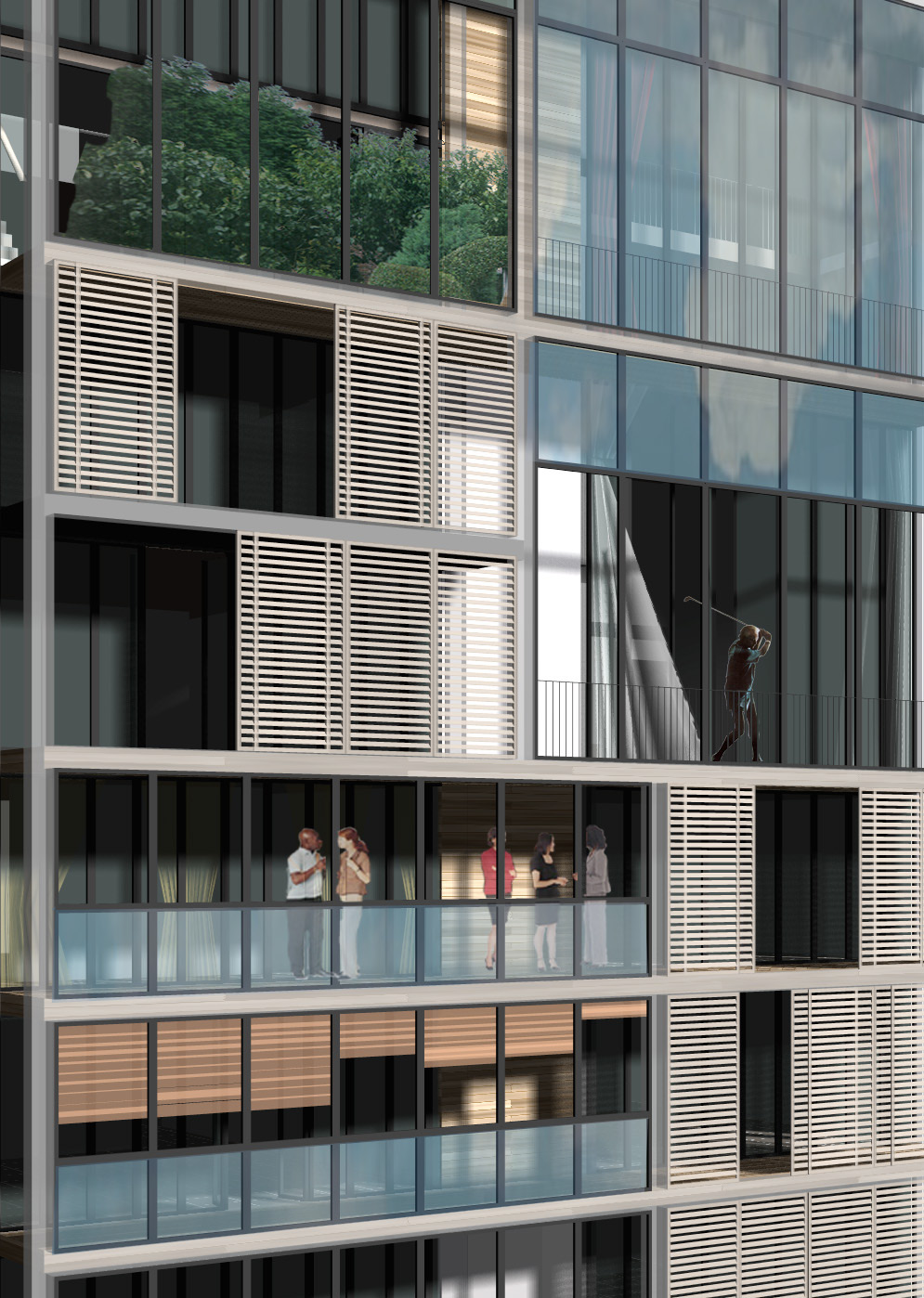‘colonisation’ of the ground into a lively street
Download PDF:
The competition site in Grenoble does not only represent a new challenge in the practice of urbanism in France, but also Europe as a whole: re-thinking the development of the city through new forms of intensification and change.
The ‘Urban Forest’ can be understood as an ‘urban ecology’ organised around seven distinct principles designed together to produce a critical urban density. The proposals outline the criteria necessary to work with the forecasted urban growth of cities like Grenoble which, in Europe’s evolving and mobile economy, need to compete for both business and people.
In this prize winning project the ‘Urban Forest’ is an attempt to grow a city. It is a claim to increase the size of the city vertically from the ground up. The dichotomy between a spacious and comfortable low density development and an economically sustainable high density development poses the biggest challenge for the competition site. The ‘Urban Forest’ takes advantage of the twofold potential of ‘vertical housing’ and a smaller scale colonisation of the ground as a transformation and growth strategy.
Anchored in the post industrial character of the site, the project’s principal aim is to satisfy the needs and desires of the inhabitants of the 21st century. The question of housing is resolved through a marked diversity of living typologies and the innovative stacking of related requirements like car parking, collective gardens and leisure/work program in not one, but many tall structures. The mutiplication of tall structures provide one of the best solutions to the diversification of the housing market.
The ‘colonisation’ of the ground into a lively street which can accommodate both dense and diverse programs, and public/private gardens will generate the conditions for urban life.



